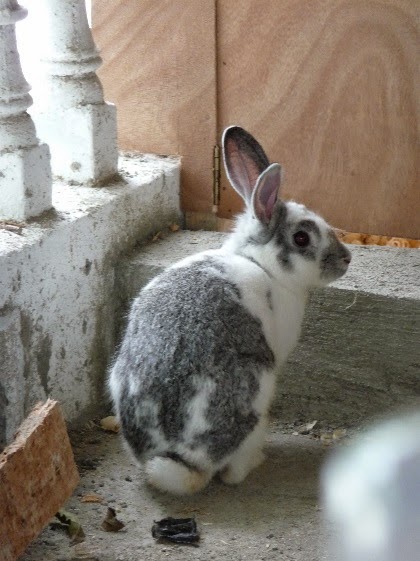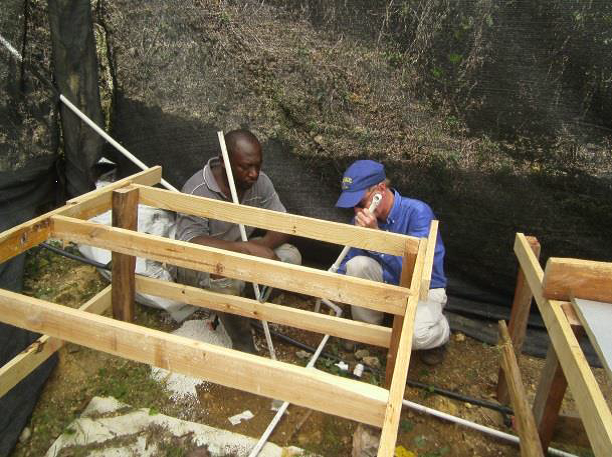Rabbit Production in Haiti

One of Philippe's rabbits During her most recent F2F assignment to Haiti, volunteer Myriam Kaplan-Pasternak provided follow-up assistance to rabbit farmers on the family-production and commercial scales. Activities were centered on promoting this industry as a viable income-generator and on educating more university agronomy students in activities related to rabbit production, such as vet care, processing, feed block production, and general management. “Twelve students and two instructors from the MARNDR (Ministry of Agriculture, Natural Resources, and Rural Development) arrived on a field trip to Lory and Quartier Morin. They visited Philippe’s rabbitry in Quartier Morin and then came to Lory for several PowerPoint talks on rabbits. We also did hands-on wet lab dissection of 5 rabbits. The next morning we made a sample batch of rabbit feed blocks. This technology is a segue into commercially available, locally made, animal feeds for farm animals. We also ate rabbits from




